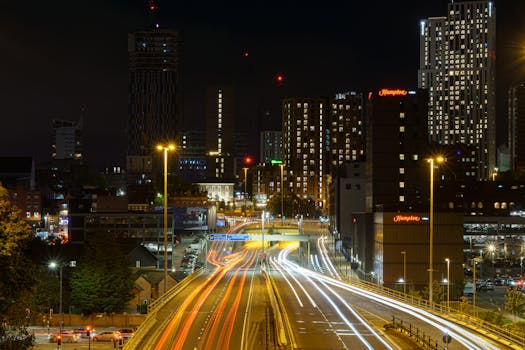Tips for Long Stays
Long-term travel or extended stays are becoming an increasingly popular choice for individuals seeking to explore new destinations, work remotely, or temporarily relocate. Whether you choose to spend a month in a vibrant urban center or several months in a serene rural area, long-term travels offer distinctive chances for profound cultural engagement, building lasting relationships, and embracing a more eco-friendly approach to exploration. The planning and execution of such stays come with their own set of challenges, including budgeting, accommodation choices, and staying organized throughout
Research and Planning for Long Stays
Prior to beginning an extended visit, careful investigation and preparation are crucial for making the experience pleasant and hassle-free. Start by evaluating the cost of living, local customs, and available resources in your selected location. Websites like Numbeoprovide in-depth analysis of price differences among cities across the globe, assisting travelers in planning their budgets wisely.
Accommodations are often one of the largest expenses during an extended trip. Platforms like Airbnb and Booking.com frequently offer discounts for long-term bookings. Alternatively, consider exploring local rental agencies or subletting options for more affordable and authentic living arrangements.
It’s also crucial to research local healthcare facilities and ensure you have adequate travel insurance that covers long stays. Websites like InsureMyTrip can provide tailored insurance plans catering to extended travel needs.
Packing Smartly for Extended Trips
Packing for a long stay requires careful consideration to avoid overpacking while ensuring you have all the essentials. Opt for versatile clothing that can be layered or styled in different ways depending on the weather conditions at your destination. Prioritize items that serve multiple purposes, such as convertible jackets or collapsible water bottles.
An efficient packing strategy includes creating a checklist to avoid forgetting important items. Consider these essentials:
- Travel documents (passport, visas, copies of identification)
- Medications and a basic first-aid kit
- Portable electronics like chargers, adapters, and power banks
- A durable travel backpack or suitcase
- Reusable toiletries to minimize waste
Remember that many items can be purchased locally if needed, so focus on packing only what is absolutely necessary. This method not only maximizes space efficiency but also reduces the burden.

Staying Productive During Long Stays
When balancing remote work or other obligations while on an extended trip, staying productive is essential. Establishing a routine helps create structure in an unfamiliar environment. Choose accommodations with reliable internet access and dedicated workspace options; co-working spaces are another excellent alternative for professionals on the go.
Set realistic goals each day to balance work commitments with leisure activities. Apps like Trello or Google Calendar can help organize tasks and deadlines efficiently. Remember to take regular breaks to explore your surroundings and recharge mentally.
Cultural Immersion and Making Connections
A major advantage of long stays is the opportunity to immerse yourself in the local culture more deeply than short-term tourists typically can. Engage with local communities by taking part in events, joining interest groups, or dedicating your time to volunteer opportunities whenever possible.
Learning basic phrases in the local language shows respect for the culture and fosters connections with residents. Language learning apps like Duolingo or Babbel can help you get started quickly. Visiting markets, participating in local festivals, or taking part in community workshops are other great ways to experience authentic cultural exchanges.
Managing Finances During Long Stays
Maintaining financial stability during an extended stay requires careful planning and monitoring. Set up a realistic budget that accounts for daily expenses such as food, transportation, entertainment, and occasional splurges. Financial management can be made simpler with the help of applications such as Mint or YNAB (You Need A Budget).
If possible, open a local bank account to reduce foreign transaction fees and make everyday transactions smoother. Alternatively, consider international-friendly credit cards with no foreign transaction fees as an alternative solution.
Staying Healthy and Safe
Your health should remain a priority throughout any long stay. Familiarize yourself with the local healthcare system in case of emergencies. Keep copies of important medical documents on hand and register with your country’s embassy if applicable.
Combat fatigue by maintaining a healthy diet and integrating physical activity into your daily life, like walking through your neighborhood or joining community fitness classes. Staying hydrated is equally important, consider carrying a reusable water bottle wherever you go.
Adapting to Life Abroad
The initial adjustment period during any long stay can feel Patience is vital during this phase; allow yourself time to adapt gradually without unrealistic expectations.
Building routines similar to those at home can create comfort amidst unfamiliarity while exploring new hobbies specific to your destination adds excitement along the way.
Extended stays bring a distinct set of challenges and advantages compared to shorter visits. When approached with thoughtful planning and the flexibility to adapt upon arrival, these longer experiences can lead to profound and lasting memories. They possess the ability to enhance our experiences in ways that surpass what we initially envisioned, turning the process into a rewarding exploration. Travelers who embrace this approach can find satisfaction and joy in the process, allowing for personal growth and meaningful connections that resonate long after they return home.